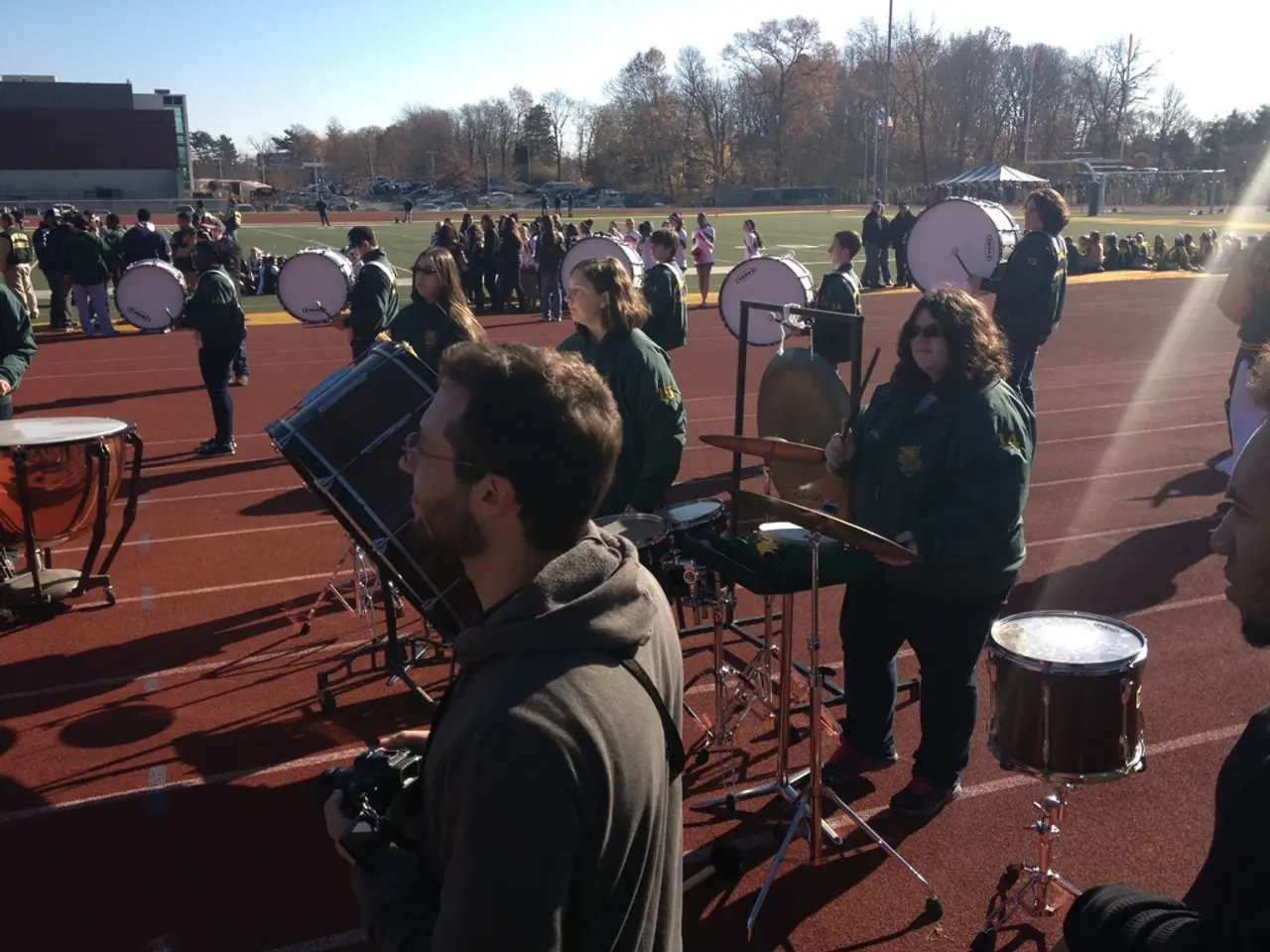Enhancing Sports Performance through the Fascinating Avenues of Classical Music
In the realm of sports, the power of music is being increasingly recognised as a valuable tool for athletes. From the gentle strains of Ravel's Bolero to the grand symphonies of Beethoven, classical music is proving to be more than just a soothing backdrop. It's becoming a crucial element in warming up the body before a session or helping to wind down after a strenuous workout.
Recent studies have shown that classical music can provide psychological, physiological, and emotive fuel during sports activities. For instance, gymnasts who trained to classical music over a six-week period showed improved balance, better mood, and lower perceived effort compared to a control group. The effect of classical music on athletic performance has been the subject of numerous studies over the years, with the benefits being increasingly evident.
One of the key reasons behind this is the calming yet mentally engaging environment that classical music induces. This environment supports emotional regulation and attentional control, which are crucial for optimal physical performance. Classical music helps regulate nerves by stabilising mood and decreasing stress levels, promoting a relaxed but alert state.
Moreover, classical music improves balance by enhancing rhythmic timing and coordination. The controlled tempo and beat structures in classical music facilitate synchronized movement, making it an ideal choice for athletes seeking to improve their balance and coordination.
The calming effects of classical music also reduce perceived effort during exercise, making physical exertion feel easier. This can extend endurance, allowing athletes to push harder and perform for longer periods.
Classical music supports focus by mitigating distractions and optimising mental arousal, enabling athletes to maintain concentration on their task. These combined factors contribute to the facilitation of a flow state—a mental zone of optimal engagement and seamless performance—frequently reported by athletes when listening to music they find personally resonant.
Supporting evidence includes research showing that music with personal relevance, including classical pieces, elevates mental arousal and blocks unpleasant sensations such as fatigue, allowing athletes to push harder and prolong effort. While the so-called “Mozart effect” itself is debated, classical music is confirmed to enhance mood and attentional states, improving cognitive functions related to spatial reasoning and problem-solving, which are beneficial for athletic skills involving balance and coordination.
In the world of sports, classical music is being embraced by athletes from various disciplines. Emma Raducanu, the British tennis sensation, has shared a clip of herself playing the piano, hinting at her love for the instrument. Manchester City footballer Nathan Ake is also a piano player, and Michelle Agyemang, a player for England's national football team, has reportedly taken her piano to the Euro 2025 final. Runners, cyclists, and footballers also report benefits from classical music, such as focus, calmness under pressure, and finding a steady rhythm.
Pieces with a beat between 120 and 140 beats per minute, like Beethoven's Symphony No. 4 Finale and Mozart's Symphony No. 40, are suitable for workouts. Chopin has been associated with gymnastics training, and the right piece of music can make a difference between pushing through and giving up during a sporting event.
In conclusion, classical music positively impacts athletic performance by helping regulate nerves, improving balance, reducing perceived effort, enhancing focus, and fostering the flow state during physical activity. These effects occur because classical music can induce a calming yet mentally engaging environment that supports emotional regulation and attentional control. Whether it's the strains of a symphony or the melody of a nocturne, the power of classical music in sports is undeniable.
Classical music, with its calming yet engaging nature, is increasingly being used as a valuable tool to enhance athlete's emotional regulation and attentional control, improving their balance, focus, and overall performance in sports. For instance, gymnasts who trained to classical music displayed improved balance, better mood, and lower perceived effort compared to those without it.
From tennis sensations like Emma Raducanu to footballers like Manchester City's Nathan Ake, athletes from various disciplines are embracing the power of classical music in their training routines, using it to regulate nerves, find a steady rhythm, and push through tough sporting events.








